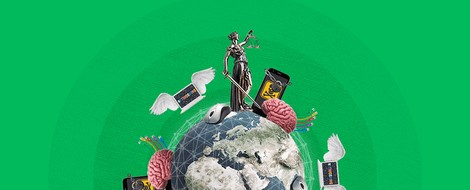Your podcast discovery platform
Curious minds select the most fascinating podcasts from around the world. Discover hand-piqd audio recommendations on your favorite topics.

piqer for: Global finds Technology and society
Prague-based media development worker from Poland with a journalistic background. Previously worked on digital issues in Brussels. Piqs about digital issues, digital rights, data protection, new trends in journalism and anything else that grabs my attention.
Social Media Was Made This Way
Imagine me using a knife as a weapon instead of a kitchen utensil — would this be an abuse of the tool? I hope it’s clear this is not a legitimate threat, but rather an illustration by Georgetown University Law School professor Joshua A. Geltzer of the negative aspects of social media, from terrorist propaganda on Twitter to racism on Airbnb. As he argues in his thought-provoking op-ed for WIRED, malignant use of social media is a direct outcome of platforms’ design and business strategies.
“When Russia manipulates elections via Facebook, or ISIS recruits followers on Twitter, or racist landlords deny rentals to blacks and then offer them to whites through Airbnb, commentators and companies describe these activities as ‘manipulation’ or ‘abuse’ of today’s ubiquitous websites and apps. The impulse is to portray this odious behaviour as a strange, unpredictable, and peripheral contortion of the platforms. But it’s not. It’s simply using those platforms as designed,” writes Geltzer.
Geltzer is not alone in this opinion. For example, The Daily Beast makes a similar case, arguing that it was Facebook's monetization strategy that enabled Cambridge Analytica to exploit people's social media activity.
Following the knife allegory, just as a blade could be used with a malicious intent, so can social media characteristics be employed by ill-willed actors. But it’s not that we have to give up on using either altogether. Geltzer believes that with enhanced transparency, stronger community involvement and more rigorous online policing, there’s still hope for the social media platforms.
“Recognizing that these challenges—and others—emerging on modern communications platforms stem from their inherent features isn’t an indictment of the companies (...), it shows just how hard these problems are. And it calls for a reorientation as to how the companies and the rest of us think about addressing these challenges,” emphasizes Geltzer.
Stay up to date – with a newsletter from your channel on Technology and society.
